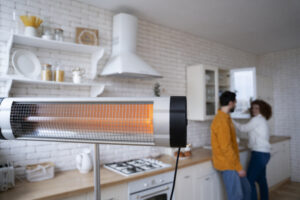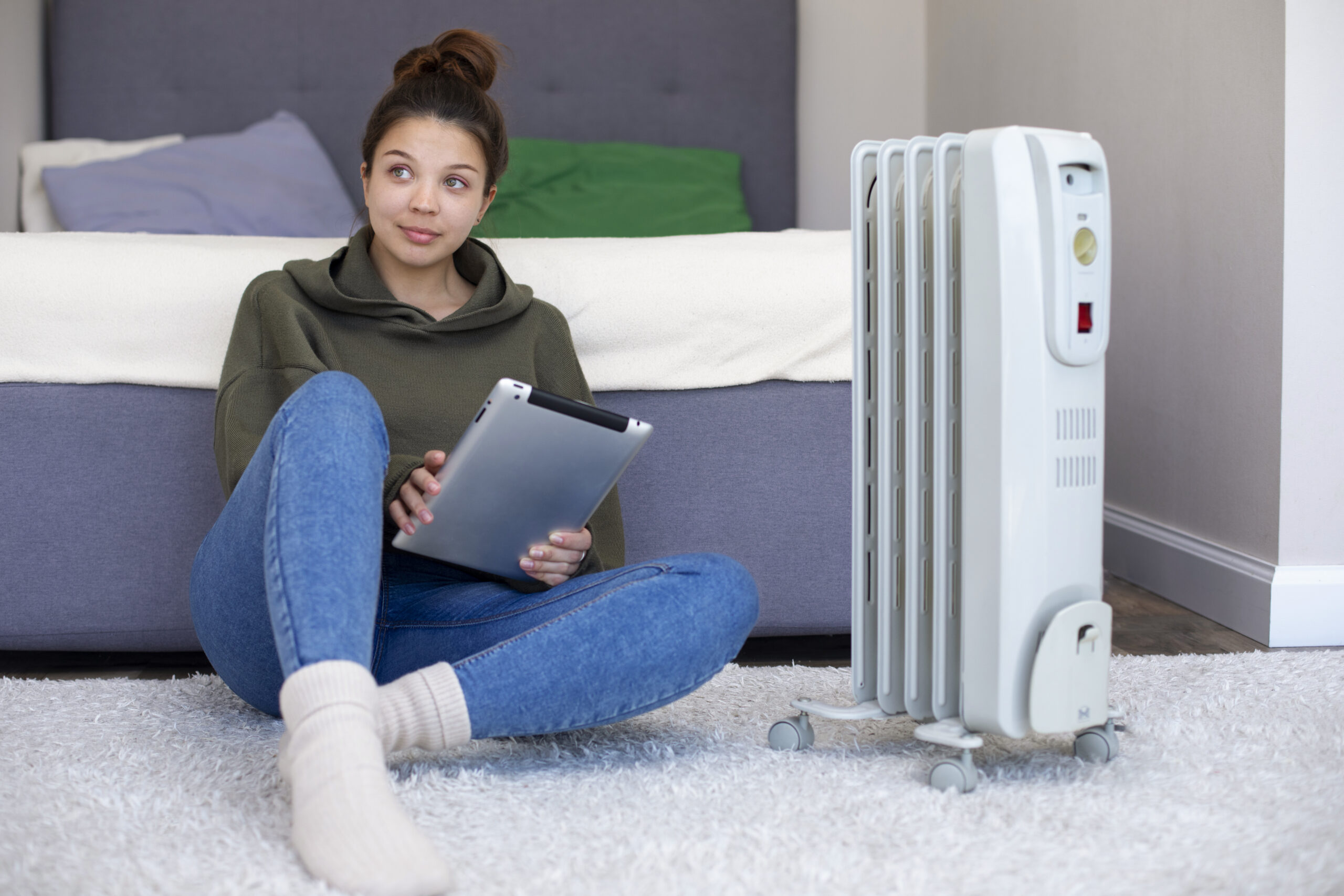For many households, finding a dependable and effective heating solution becomes crucial as winter draws near. are one option that has become extremely popular. Propane heaters are a great option for anyone looking for an affordable way to remain warm throughout the winter months because of its reputation for mobility, efficiency, and versatility.
We’ll cover all you need to know about propane heaters in this extensive guide, including their varieties, advantages, safety advice, and upkeep requirements. If you’re thinking of getting a propane heater for your house, garage, or outdoor area, this post will provide you all the information you need to make a wise choice.
A wPropane Heater: What is It?
Propane gas, which burns cleanly and is kept in liquid form in pressurized tanks, powers a propane heater. From indoor spaces like homes and businesses to outdoor settings like patios and camping areas, these heaters are made to give warmth in a variety of scenarios. Propane heaters are especially valued for their rapid heat production and efficiency.

Different Propane Heater Types
Numerous types of propane heaters are available, each intended to fulfill particular requirements. Here are the primary kinds:
1. Transportable Heaters for Propane
For outdoor pursuits like camping, hunting, and tailgating, portable are perfect because they are small and light. Safety features like oxygen depletion sensors and tip-over shut-off are usually integrated into them.
2. Propane heaters for indoor use
The purpose of indoor propane heaters is to safely heat enclosed areas. Advanced safety mechanisms to stop carbon monoxide buildup are frequently included with these models. Some rely on catalytic technology to function securely indoors, while others are vent-free and release gasses outdoors.
3. Heaters that use propane outside
For patios, decks, and other open areas, outdoor propane heaters are ideal. In addition to being practical, these heaters frequently have fashionable forms, such tall pyramid heaters with flame displays.
4. Heaters for garages and workshops
High BTU outputs are provided by propane heaters for garages and workshops, which are made for larger spaces and guarantee enough warmth in places that are drafty or poorly insulated.
5. Heaters mounted on walls or ceilings
By being mounted on walls or ceilings, these models conserve floor space. They are perfect for long-term installations in garages, workshops, or basements.

Advantages of Propane Heating Equipment Use
1. Excellent Performance
The majority of fuel is converted into heat by extremely efficient propane heaters. As a result, they use less energy than electric heaters.
2. Financially efficient
Especially in places where energy prices are high, propane is frequently less expensive than electricity. Propane heaters’ portability also removes the need for expensive installation or home modifications.
3. Mobility
You may use a lot of propane heaters outside or transfer them from room to room because they are portable. Because of their versatility, they’re a great option for short-term heating requirements.
4. Eco-Friendly
Propane emits fewer greenhouse gases than other fossil fuels like coal or oil because it burns cleanly. Propane heaters are therefore a sustainable heating option.
5. Fast Heating
Propane heaters give instant heat, which makes them perfect for quickly warming cold environments in contrast to electric heaters that could take some time to warm up.
6. Flexibility
Homes, garages, camping excursions, and outdoor events are just a few of the places where propane heaters can be utilized.
Important Qualities to Consider in a Propane Heater

Take into account the following characteristics when looking for a propane heater to make sure you select the best model for your requirements:
1. Rating of BTU
The heating capability of a propane heater is indicated by its BTU (British Thermal Unit) rating. A heater with a higher BTU rating has the capacity to warm a greater area.
2. Features for Safety
Seek out heaters with necessary safety features like:
• Tip-Over Shut-Off: This feature automatically switches off the heater in the event that it topples.
• Oxygen Depletion Sensor: If oxygen levels fall too low, the ODS turns off the heating.
• Overheat Protection: Guards against the heater becoming too hot.
3. Control of the thermostat
With the help of a built-in thermostat, you can control the temperature for maximum comfort and energy efficiency.
4. The System of Ignition
Select between push-button electronic ignition and manual ignition, which requires a match or lighter.
5. Mobility
Choose a lightweight model with wheels or a carry handle for simple mobility for the most versatility.
6. Sturdiness.
Even with continuous usage, a strong construction and premium materials guarantee that your propane heater will survive for many years.
Safety Advice for Propane Heater Use
Although heaters that run on propane
are generally safe, it is crucial to take the right safety precautions to prevent mishaps:
1. Verify Adequate Ventilation
• To avoid carbon monoxide buildup, use a heater intended for enclosed places indoors and make sure there is enough ventilation.
2. Comply with the manufacturer’s instructions
• For installation, operation, and maintenance, always read and follow the manufacturer’s instructions.
3. Avoid Contact with Combustible Substances
• Keep the heater a safe distance away from combustible materials like paper, furniture, or drapes.
4. Do Regular Inspections
• Before each use, look for damage, cracks, or leaks in the heater and propane tank.
5. Safely Store Propane
• Keep propane tanks out of direct sunlight and open flames and in a cool, dry, and well-ventilated location.
6. Never Leave Someone Alone
• If a propane heater is in an enclosed area, it is extremely important to keep an eye on it.
7. Set up detectors for carbon monoxide
• If your home has a propane furnace, install carbon monoxide detectors for further safety.
Maintenance Advice for Extended Life
Proper upkeep guarantees the safe and effective operation of your Here are some pointers:
1. Make the heater clean.
• Clean the heater’s exterior, vents, and burner on a regular basis to get rid of dust and dirt.
2. Examine the Connections and Hoses
• Inspect connections and hoses for damage and repair them as needed.
3. Check the Ignition Mechanism
• Check that the ignition system is operating properly and swap out any worn-out parts.
4. Properly Store
• To avoid corrosion and damage, keep the heater in a dry, sheltered place when not in use.
5. Arrange for Expert Repair Services
• To guarantee that all of the parts are in good operating order, have your serviced by a professional once a year.
Common Questions Regarding Propane Heaters
1. Is it safe to use propane heaters indoors?
Absolutely, but only if the heater is made especially for indoor use. Use the heater in accordance with the manufacturer’s instructions and always look for safety certifications.
2. What is the average lifespan of a propane tank?
The size of the tank and the heater’s BTU rating determine how long it takes. A 20-pound propane tank, for instance, can run on medium for around 10 to 12 hours.
3. Is it possible to use a propane heater in a garage?
Garages can use gas heaters, yes. Make sure there is adequate airflow and choose a model with a high enough BTU output.
4. How much does it cost to run a propane heater?
The price and usage of propane affect the cost. For heating large spaces, gas heaters are typically less expensive than electric heaters.
In conclusion,
A propane heater is a dependable, effective, and adaptable heating option for a variety of uses. If you want to warm your house, garage, or patio, there is a that will work for you. Through comprehension of the various varieties, attributes, and safety measures, you may select the ideal propane heater for your area and take pleasure in a comfortable, warm setting all winter long.
you me like http://vivo-t2-pro-redefining-performance-and-style-in-mid
Get a propane heater now to enjoy the ideal balance of efficiency and comfort!










